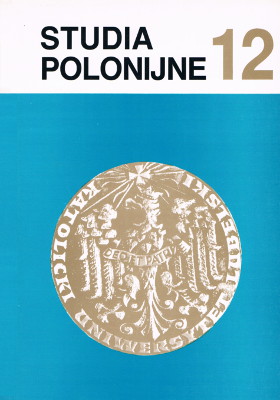Polish-French Mixed Marriages
Main Article Content
Abstract
In general, mixed marriages among persons of Polish origin who came to France to earn their living in the interwar period are lasting. Divorces were very rare. Emigration from Poland in the 60s and 70s which constituted mostly the educated people who contracted fictitious mixed marriages in order to legalize as soon as possible their stay abroad. Engineers, architects, doctors, different scholars contracted marriages with a person who had much lower education and they divorced soon afterwards.
The strangth of emotional tie between partners, common sense reason and the spirit of toleration and ecumenism among denominations decide for the indissolubility of marriages. One has to take into account the opinion of environment. The countries which consist of various national and denominational groups create a healthier atmosphere for mixed marriages. Very often parents do not want to accept their son-in-law or daughter-in-law who come from a different national or denominational group, especially the persons whose skin is of a different colour. Fictitious marriages and mixed marriages which are contracted hastily result, generally speaking, in bitter consequences, especially when children are born.
Nationally and denominationally mixed marriages have many problems, as for example the problem of using a language at home. They have also problems with giving names to their children. Sometimes parents give two names which are used in both countries of their origin. How to spend a holiday is often a dilemma. Apart from that the hierarchy of values and cultural heritage have their influence on the indissolubility of mixed marriages.
As the difference among particular countries is being blurred, and the mobility of people becomes greater, mixed marriages will take place more often. One has to make the youth more aware of the moral and social-cultural problems which are connected with it, as far as nationality and culture is concerned.

